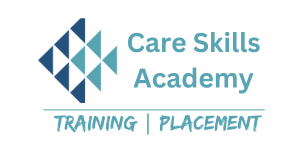Printed Circuit Boards (PCBs) are the backbone of all electronic devices, from simple gadgets to complex machinery. With the rapid growth of the electronics industry, the demand for skilled PCB repair technicians has increased significantly. Care Skills Academy is proud to offer a comprehensive PCB repairing course in Assam, tailored to provide you with the skills and knowledge necessary to excel in this field. Let’s explore what the course offers, its importance, and the career opportunities it presents.
Why Choose a PCB Repairing Course?
- High Demand for PCB Technicians:
- PCBs are integral to a wide range of industries, including consumer electronics, telecommunications, automotive, and industrial machinery. As technology advances, so does the need for skilled technicians who can repair and maintain these crucial components. By taking a PCB repairing course, you position yourself at the forefront of this growing demand.
- Essential Skills for Technicians:
- PCB repair requires a detailed understanding of electronic circuits, components, and troubleshooting techniques. This course provides you with hands-on training in diagnosing faults, replacing faulty components, and ensuring the functionality of electronic devices. These skills are essential for anyone looking to work in electronics repair or manufacturing.
- Career Versatility:
- The skills acquired in a PCB repairing course are applicable across multiple industries. Whether you aspire to work in consumer electronics, telecommunications, automotive, or even aerospace, proficiency in PCB repair will be a valuable asset.
What Does the PCB Repairing Course Cover?
Our PCB repairing course in Assam is meticulously designed to cater to both beginners and those with some background in electronics. Here’s a breakdown of the course structure:
- Introduction to PCBs:
- The course begins with an overview of PCBs, including their history, types, and applications. You’ll learn about single-layer, double-layer, and multi-layer PCBs, as well as their specific uses in different electronic devices.
- Understanding Electronic Components:
- A crucial part of PCB repair is understanding the various components mounted on the board. You will learn about resistors, capacitors, diodes, transistors, and integrated circuits, and how they function within a circuit.
- Soldering and Desoldering Techniques:
- Mastering the art of soldering is essential for any PCB technician. Our course provides hands-on training in both soldering and desoldering techniques, ensuring that you can make reliable connections and remove faulty components without damaging the board.
- Fault Diagnosis and Troubleshooting:
- Learn how to identify common faults in PCBs using various diagnostic tools like multimeters and oscilloscopes. You will be trained to systematically troubleshoot issues, pinpoint faulty components, and replace or repair them effectively.
- Advanced Repair Techniques:
- For those looking to deepen their expertise, the course includes advanced repair techniques such as track repair, component testing, and micro-soldering. These skills are particularly valuable when dealing with high-density PCBs found in modern electronics.
- Safety Practices and Quality Control:
- Safety is paramount when working with electronic components. Our course covers essential safety practices to prevent accidents and ensure high-quality repairs. You will also learn about quality control measures to maintain standards in your work.
Why Choose Care Skills Academy?
At Care Skills Academy, we are dedicated to providing high-quality technical education that is aligned with industry standards. Our PCB repairing course is taught by experienced instructors who bring real-world knowledge to the classroom. Our state-of-the-art facilities in Assam are equipped with the latest tools and equipment, creating an ideal learning environment for students.
Career Opportunities and Future Prospects
Upon completing our PCB repairing course, you will be well-prepared to pursue various career paths, including:
- PCB Repair Technician: Work in electronics repair shops, service centers, or start your own repair business.
- Electronics Engineer: Use your skills in electronics manufacturing companies to design, test, and maintain PCBs.
- Technical Support Specialist: Provide technical support for companies that rely on electronic devices, troubleshooting PCB-related issues.
- Freelance Technician: Offer your services as a freelance PCB repair technician, catering to individuals and businesses with electronics repair needs.
Conclusion
The world of electronics is vast and ever-expanding, making skilled PCB technicians essential in keeping devices functioning efficiently. Enrolling in the PCB repairing course at Care Skills Academy in Assam will equip you with the technical knowledge, hands-on experience, and confidence to excel in this field. Whether you’re looking to start a new career or enhance your current skills, our course offers a solid foundation for success. Join us and take the first step towards a rewarding career in PCB repair and maintenance!

